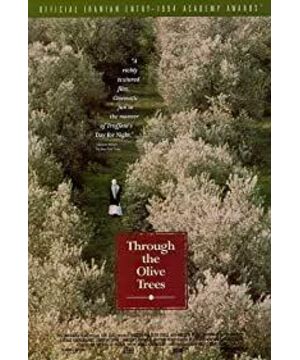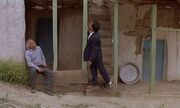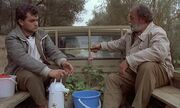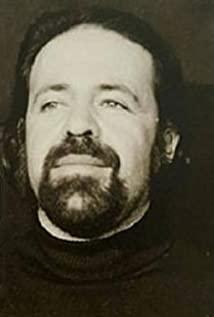The Village Trilogy is an Abbas who constructs himself step by step.
Where is my friend's house? There is a clear narrative, which fully demonstrates the strong foundation and unique style of Abbas's feature films, composition preferences, documentary film shooting techniques, such as the watermark-like Z-shaped mountain road and so on. This is the teenager described by Abbas. Starting around the 1960s, stories of different social backgrounds with the theme of adolescence appeared in various countries around the world. Abbas filled in this belated article from Iran and let the world got it. The oppression of society and patrilineal and matriarchal lines, the numbness of the adult world and the anxious impulses driven by the innocent aspirations of young people. The human nature involved in the trilogy has been further extended in the works after Abbas, from where is my friend's house to the taste of cherries, the pure good and evil at the beginning of life to the nothingness at the end of life . Compared with the Iranian New Wave works of the same period, such as Little Shoes, they touch people’s hearts more simply and entice the audience to participate autonomously, but the people under Abbas’s mirror always build a strong fortress with the outside world, longing for redemption. Life Changliu is a continuation of where is my friend's house. In 1990, an earthquake occurred in the northwest of Iran, which aroused Abbas to pour more humanistic care into his works. He spoke of hope in the misty sadness, which is the shining light of humanity, the carrier of time passing is the simple picture of life, the ruins and pure green grass, the women washing clothes by the clear stream, it seems that Abbas A God-like broad and tender mind embraces all of this, allowing us to realize the true meaning and beauty of life that are whitewashed by noise and diluted by nothingness. This is also the most poetic chapter in the trilogy. . The Lover Under the Olive Tree is a re-structure of the growth flow, and the third structure of where is my friend's house. This is a meta-movie in the true sense. At this moment, what is true and false has lost its meaning. Godard said that the film is the reality under 24 frames, and Abbas's deconstruction of his own work makes it lose the source of trust that the audience trusts, but this means that only our current feelings can be grasped by both hands. The truth that belongs to us, not the truth that "events actually happened". Everything ends on that piece of green, which is Abbas' most sincere thank you to the audience for the end of the trilogy.
View more about Through the Olive Trees reviews








